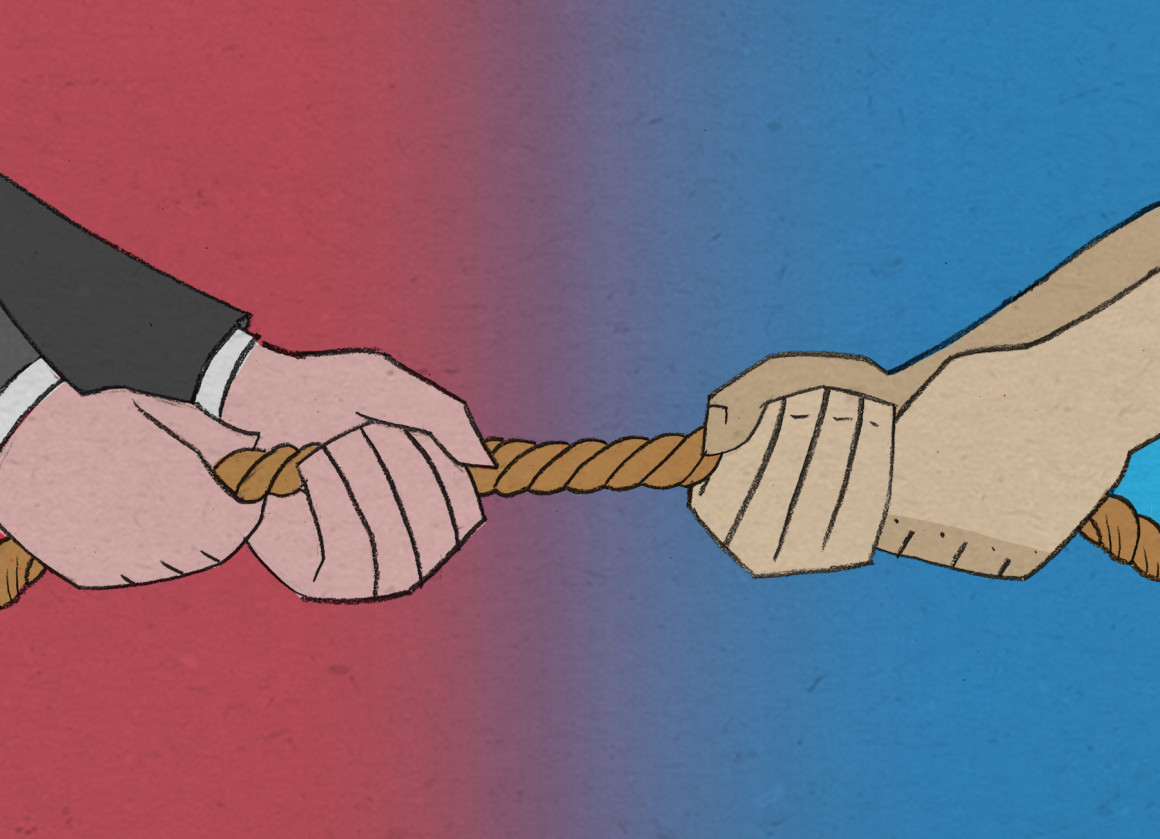
Students deserve more details about MacHall’s future
The University of Calgary and its Students’ Union have been embroiled in a conflict over who owns MacHall for a long time. Both sides negotiated over the building’s operating agreement behind closed doors for years — until the SU made their dispute with administration public last fall.
For a while, it looked like the matter was headed to court. But on Dec. 4, 2015, both sides agreed to an eleventh hour mediation over the building’s ownership.
That was four months ago. Since then, no one who wasn’t already privy to these closed door negotiations has received any new information. Both the university and the SU have refused to speak publicly about the mediation and its subject matter since December of last year.
We don’t know how well the mediation is going. We don’t know what each side is willing to give up. We don’t even know what they’re saying to each other. And for two organizations that pride themselves on transparency and consultation, this is a slap in the face.
I am, to an extent, willing to trust that university administration is doing their best to ensure the stability of the university. I am also willing, to an extent, to trust that the SU is doing their best to represent student interests.
But that trust wears very thin when we don’t know what’s going on. The best thing that came out of the SU making their dispute public wasn’t the prolonged pissing match over who owns the building — it was that, for the first time in a long while, students had access to information about these negotiations.
Instead of vague assurances from both sides that the negotiations were going well, they wrote heated open letters to one another detailing their grievances. When university administration publicly announced their plans to seize control of MacHall, students confronted them at a heated town hall. Because we all had access to information, the discussion became a public one.
We were, for a few brief months, able to stop the charade that the only problem with the negotiations were a few tiny details in the operating agreement. We stopped pretending that the SU and the university actually liked each other and that things were going well.
When all the information was public, we were able to confront the actual problems underlying this issue. The SU believes they own MacHall, and they want an operating agreement that reflects that. The university disagrees, and is unwilling to sign an operating agreement that, to them, grants the SU a right they don’t deserve.
A legal battle might have been ugly and expensive, but at least it would have been honest. Representatives from both organizations
would have had to state their claims and then back them up with evidence. And, like the original lawsuit in the fall, it all would have been accessible to the public.
Aside from the fact that these closed door negotiations are secretive and frustrating, they also don’t work. Before the dispute went public, negotiations were entering their third year, with little to show for it.
Students are always going to be at a disadvantage when negotiating in private with powerful organizations. When it comes to the sheer amount of money and time both sides have, university administration is always going to win.
University administrators come to these jobs at the peak of their careers, with decades of experience in their fields and salaries to match. It’s difficult for the SU to counter the university’s resources with a handful of full-time staff and students who shuffle jobs every year.
The SU has very little to gain from resuming these private negotiations with university administration. And it’s frustrating to see them throw our right to know what’s going on with our own student centre under the bus to appease university administrators unlikely to negotiate with them in good faith.
Kate Jacobson, Gauntlet Editorial Board
